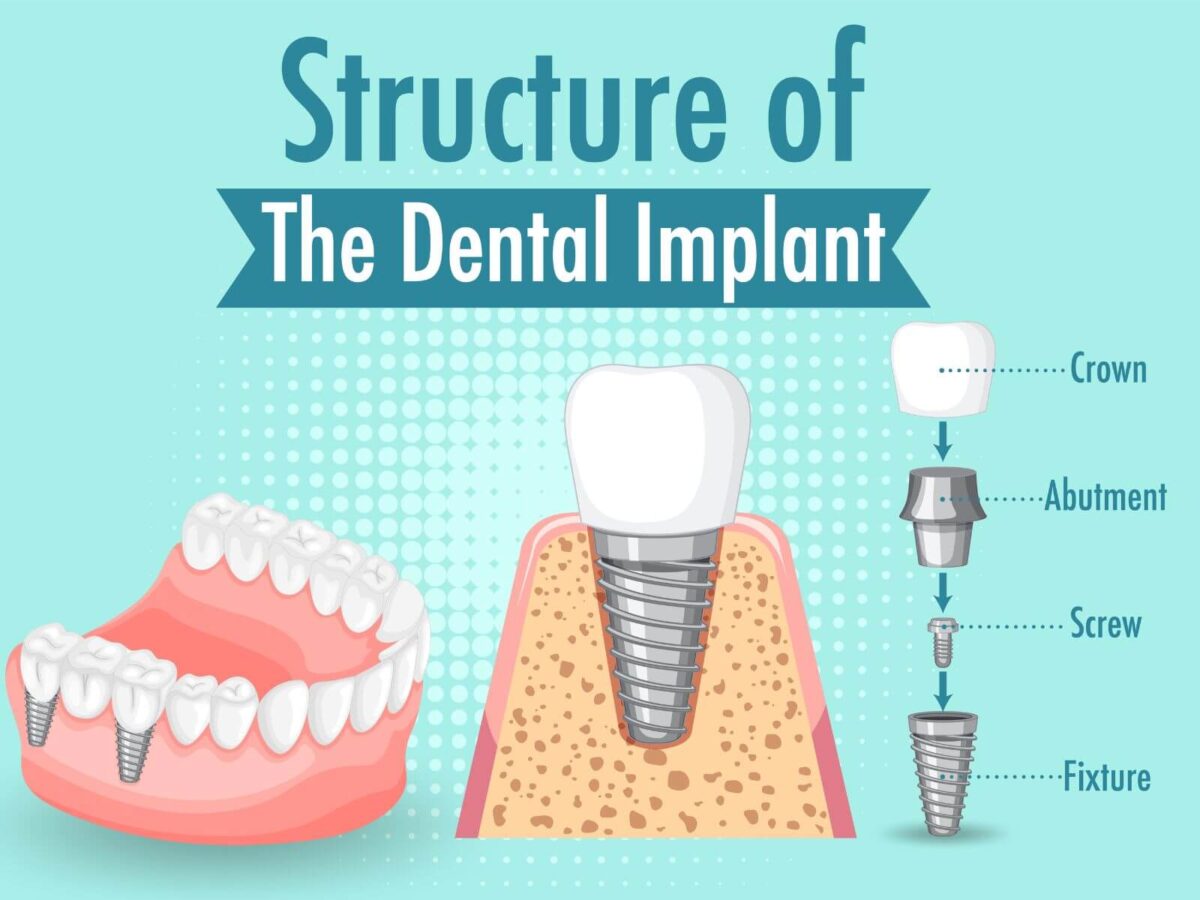Blog
Dental hygiene tips for healthy teeth & gums

How To Deal With Dental Implant Failure?
Dental implants are one of the more common methods of tooth replacement because they offer long-term functionality, stability, and aesthetic results. However, like in any form of treatment, there is a remote possibility that the implant could snap. You should learn the signs of implant failure and how you can deal with it to save your dental health.
As a practicing team at Azle Dentist TX, we have encountered different dental implant complications and know how to prevent them or deal with them in case they occur. In this post, we present an analysis of some of the causes of implant failure, the signs to watch out for, and how to manage and prevent these failures.
Signs Of Dental Implant Failure
Familiarizing yourself with the signs that may suggest implant failure will allow for the timely prevention of severe complications. Some of the most common indicators include:
- Severe Pain and Discomfort
Although post-surgical patients may experience some pain, increasing pain after implant surgery could be due to implant failure. This can happen if the implant has not been rooted appropriately in the jaw or if an infection develops around this area. - Loose or Shifting Implant
If an implant feels loose or unstable, failure is signaled. An ideal implant should feel at par with all natural teeth—stable and immovable. If the implant is displaceable upon touching it with the hand or when chewing food, then it might not have osseointegrated well. - Swelling or Inflammation
The presence of tender lumps around the implant, puffiness, or reddening of the skin where the implant was placed, especially if the conditions persist for weeks after the operation, may indicate implant failure or infection. There should not be much body swelling during healthy healing; if there is, it should be treated. - Gum Recession Around the Implant
The gum tissue surrounding the implant should be healthy. If the gums are receding and you can see the implant, or if you are having some pain, then it might be the result of improper placement or even infection. - Difficulty Chewing or Biting
If you find that you can no longer chew or bite down on food as easily as you could before getting an implant, it is possible that the process was a failure or that the implant was done incorrectly. - Infection at the Implant Site
It has been established that diseases, known as peri-implantitis, can lead to the failure of the implant. Symptoms of infections are a foul odor or taste that does not go away and a discharge of pus around the implantation area.
Causes of Dental Implant Failure
There are several potential causes of dental implant complications:
- Infection (Peri-Implantitis): Infection occurs around the implant site mainly due to septic contamination during surgery or lack of oral hygiene. Peri-implantitis, on the other hand, is an infection that affects a dental implant’s soft tissues and the bone base, thus causing loss of the bone and, consequently, the implant.
- Insufficient Bone Density: For the implant to be successful, there must be enough bone to fuse with. There are times when there is poor bone density, in which the implant can become loose or even fail to implant perfectly, leading to failure.
- Smoking: Surgery can be severely threatened by smoking because smoking delays the body’s process of healing as it will lead to infections or even failure of the implants used. Smoking cessation is highly advised before implant surgery can be performed.
- Bruxism (Teeth Grinding): Teeth grinding or clenching also exerts enormous pressure on the implant, which is likely to fail. If you are a bruxism patient, you are advised to inform your dentist about this situation before implantation.
- Poor Oral Hygiene: If an individual does not brush his or her teeth, infections, and gum diseases are known to threaten the stability of the implant.
- Allergic Reactions: Unfortunately, there are some cases wherein the patient may be allergic to the materials used for the implant, which is usually titanium. This can cause some inflammation in implants, thus failing them in practice.
Treatment for Dental Implant Failure
In case you think you have dental implant failure, you must seek the help of your dentist as soon as possible. The treatment plan is dependent on the cause of the failure and the degree of the failure. Here’s how Azle Dentist TX can help:
1. Addressing Infections
In case the cause of implant failure is an infection, the dentist may put you on antibiotics so that you can get rid of the infection. For severe conditions, surgical intervention could be needed to clean the contaminated area and remove badly infected tissue.
2. Bone Grafts
If the failure is due to a lack of bone density, a bone graft may be needed. In this procedure, the jaw is built up using bone tissue in a bid to offer a complex that will hold the implant. A new implant can be placed when the graft has healed. After a graft has healed, the tissue can be replaced by a new implant.
3. Replacement Of The Implant
In some cases, the dental implant fails to bond fully or becomes loose; it might be necessary to have the implant pulled out. In some cases, your dentist may suggest you get a new implant, or after a while has passed, more elaborate measures, such as bone grafting, or simpler measures, such as practicing better oral hygiene, may be taken to enhance success.
4. Managing Bruxism
If teeth grinding is the reason for that, your dentist will likely recommend a mouth guard that will apply a cushion between your upper and lower teeth to lessen the pressure for your implant. This guard is worn during nighttime to avoid grinding and clenching during the night while in the sleep.
5. Implant Removal and Healing
In the worst-case scenario, the implant becomes loose and must be removed in cases of bone loss or infection. After some time, the dentist is in a position to determine if it is safe to put another implant or if the patient needs to opt for other treatment, such as having a bridge or dentures fixed.
Preventing Dental Implant Failure
Since the failure rate of dental implants is relatively high, the avoidance of complications can save the procedure in the long run. Here are some tips to maintain a healthy implant:
- Maintain Good Oral Hygiene: Brush and rinse your mouth with lukewarm water every day and gently clean the implant site where you lost a tooth. It is important to pay a visit to Azle Dentist TX if you want to ensure the good health of your implant and gum; this should be done often.
- Quit Smoking: If you are a smoker, you should quit smoking well in advance of implant placement to minimize the chances of implant failure.
- Regular Dental Visits: You can check for any signs of implant failure during a routine visit to your dentist. Professional cleaning and examinations help keep your implant in good shape.
- Prevention: If you want your implant consistent and long-lasting, a patient with bruxism should wear a nightguard or a splint.
Conclusion
Dental implants are popular and effective means for the rehabilitation of patients with dental fractures or other types of lost teeth, but they can sometimes fail. It is very important to know the signs of failure and make sure you visit Azle Dentist TX for treatment as soon as possible to avoid more damage. If you’re confronting infection, require a bone graft to decide when to change the implant, or need another oral procedure, we are ready for your assistance and provide you with a healthy, functional smile.


